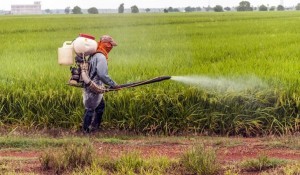Greece’s Ministry of Rural Development and Food announced on Friday (4 August) that the customs office seized more than 700 kilos of illegal pesticides originating from Turkey.
In 2017 alone, fines totalling €211,475 have been imposed in 59 different cases. All cases were referred to Greek judges for additional criminal sanctions as well as other relevant authorities for the planned cutback of EU funds.
In its statement, the ministry warned about the disastrous effects of illegal pesticide usage has on the economy and the environment.
“No import duties are collected at the time of importation, the VAT is not collected either when they are traded, while companies and shops selling pesticides are driven to an economic downturn,” the ministry said.
It added that the users of these pesticides are also in danger as well as the consumers who will actually buy the final products.
The EU level
The European Crop Protection Association (ECPA) has warned that increasing quantities of fake and illegal pesticides are being produced globally and this is a serious organised crime.
ECPA says illegal pesticides might contain chemicals that are untested and which are either banned or restricted in the EU due to the potential risks they may pose to human health or the environment, as well as the risk to farmer livelihoods.
In February, the EU Intellectual Property Office (EUIPO) published a report which estimated that legitimate industry loses about €1.3 billion in annual revenues due to counterfeit pesticides, while the direct impact on employment is also significant.
The survey noted in particular that approximately 2,600 direct jobs are lost in the EU. Taking wider implications into account, lost jobs could reach 11,700. In a sector that is worth €4 billion, the German pesticide industry loses €299 million and 500 jobs per year.
Ask me anything
Explore related questions





